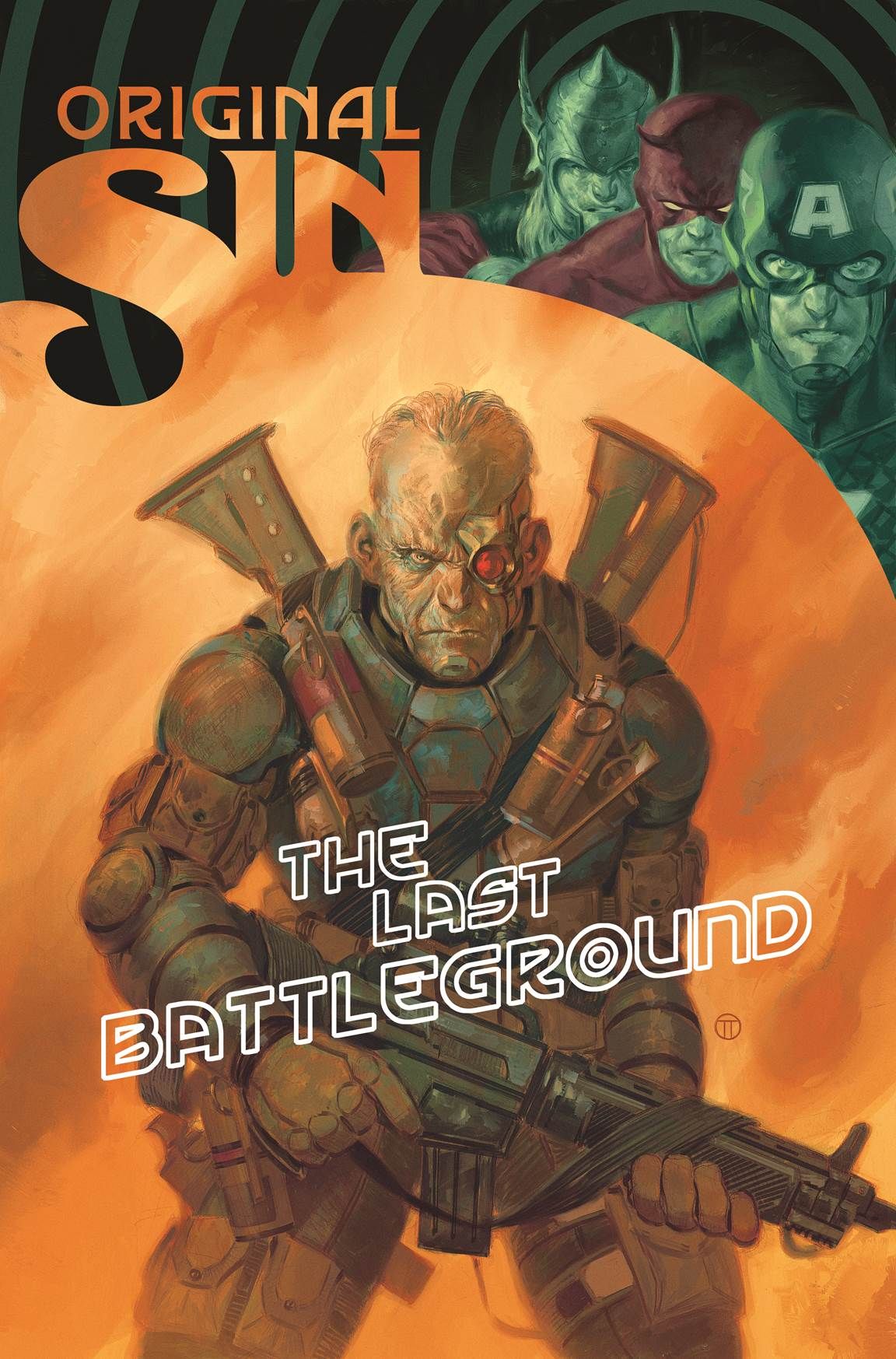"Original Sin" #7 by Jason Aaron and Mike Deodato is one big fight, "Nick Fury vs. The World."
"Original Sin" has been a bait-and-switch. The teaser was the Watcher's death and the murder mystery. The mystery aspect has been kicked aside for a story about Nick Fury's backstage role in the Marvel Universe. While the revelations about Fury are epic, the tone and structure of the story have changed from an intergalactic detective story to a story about Fury's moral vulnerability and decline from the responsibilities he has carried. The two plot structures are linked by a theme of crime and punishment, and the shift is gradual. Still, a reader who picked the book up for the whodunit aspect would be right to feel nonplussed.
When he's not taking down an Avenger or two, Fury uses his time on the stage in "Original Sin" #7 to try to make a case against the commonplace moral logic that murder is bad, no matter what the motives. Previous treatments of the theme such as Dostoyevsky "Crime and Punishment" and the varying degrees of outrage among the other characters foreshadow that Fury probably won't be on the "right side of history," as Dr. Strange puts it.
"Original Sin" dips into with biblical themes, but it doesn't have the room to develop philosophical angles. Aaron uses Fury as a lesson about the dangers of knowledge and the bliss of ignorance, but the moral question feels stale because the story has yet to go beyond the basics. The reader and the cast are still unaware of the scope of Fury's activities, and thus unable to fully appreciate the wages of sin.
Much of the yet-unsolved mystery still churning in "Original Sin" #7 relies too much on characters withholding information from the reader and from each other, either through convenient interruptions or from Fury's oblique hinting. This obtuseness artificially lengthens the suspense, but it makes no real sense within the plot as it stands. It's infuriating to Cap and his team who are still in the dark, and no doubt it also wears on the reader's patience.
Aaron has to really stretch to make Fury's odds believable, and maybe that's why Fury has to be so inscrutable, because it makes it more passable he has so many aces up his sleeve. The big plot twist about Thor is satisfying while also being too coy. Fury grandly declares his methods before executing his move, which feels overwrought, but Deodato's silent panel of Mjölnir feels iconic and has the right amount of narrative oomph.
The pacing is impressive in how Aaron and Deodato manage the flow of events. Crossover events easily balloon out of control, but Aaron's flow of dialogue and Deodato's visual pacing manage to keep the conflict human-sized and character-driven. The action is broken down into a series of confrontations and hand-to-hand combat scenes, with tidbits of information revealed along the way.
Deodato's experimental page compositions are too much sometimes, but he pulls off more than he misses. His style feels cluttered if each page is looked as a whole, but the reading experience is surprisingly very smooth. His panel compositions lack tension and fluidity, but his textural depth is impressive, in everything from the veins in the Watcher's disembodied eyeballs to the waves of sand on the moon's surface. Martin's color work isn't the most imaginative, but it preserves Deodato's attention to detail.
With only one issue to go, it's uncertain whether Aaron and Deodato will be able to wrap everything up in a satisfactory finale, with all the questions still in the air. That said, if the reader has come this far, it will be hard to resist picking up the last issue.

